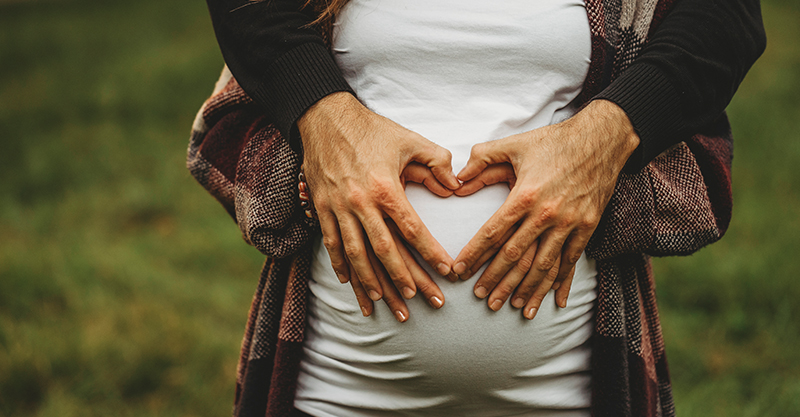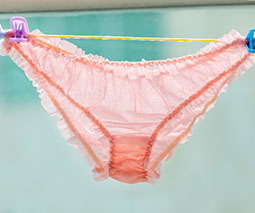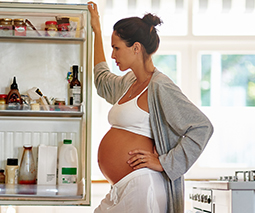Some hospitals are now refusing to reveal baby’s sex during ultrasounds

For many parents, finding out whether they are expecting a baby boy or a baby girl is an important part of the process of preparing for parenthood.
Boy or girl?
But there’s a new trend by hospitals to refuse to identify the sex of unborn babies, leaving some parents-to-be very disappointed.
Don’t panic yet – if a gender reveal is part of your baby-welcoming plans – because this trend has not extended to Australia yet. It is, however, happening in Scotland where officials say there’s good reason to simply use these scans to detect foetal abnormalities, rather than to break the ‘boy or girl’ news to expectant mums and dads.
By around 13 weeks gestation most ultrasound technicians can identify the sex of a baby accurately. Between 16 and 20 weeks things are even clearer with some parents opting to find out the sex of their baby ahead of the birth at this mid-pregnancy scan. Later scans can identify the sex of a baby even more accurately, but these pre-birth reveals can be a bad idea, some medical professionals say.
In Scotland, several hospitals are now refusing to identify the sex of unborn babies – partly because they’re concerned they’ll face legal action if they get it wrong. They also cite the health of the unborn child, and are apparently worried that some babies may be terminated if they are not the hoped-for sex.
Read more about gender:
- Pushes for sex classification to be removed from birth certificates
- Signs your child might be gender variant and how you can support them
- Kate Hudson says she prefers a “genderless” approach to raising kids
- Gender neutral: A quiet revolution is underway in the toy world
Litigation and termination
One Scottish midwife told newspaper The Sunday Post that litigation was a valid concern, as was the mental health of mums and physical health of babies.
“There were threats of legal action if we got it wrong,” she explained, choosing to remain anonymous. “Some women no longer nurtured the pregnancy if they were told it was a girl.”
Another midwife said families can incur cost and disappointment when health professionals get it wrong.
“Mistakes happen,” she pointed out. “I had a case where a couple were told they were having a wee girl and everything they had was pink, the nursery was decorated pink, and then they had a boy.”

The local story
In Australia ultrasound providers have their own protocols on whether they reveal the sex of the baby at the first scan. The Australasian Sonographers Association (ASA) official position on these reveals is that sonographers should not become involved in the debate around gender selection, The Sydney Morning Herald recently reported.
ASA chief executive, Jodie Long, explained that if the sonographer felt confident that they could identify the sex of an unborn baby, then they would provide that information if parents asked for it.
“What the parents do with information is not for the sonographer to determine,” she said
A preference for sons
The worries about scans leading to sex-based terminations are not entirely hypothetical. There’s some statistical evidence which indicates that ultrasounds may indeed be being used for sex selection.
Recent research by Melbourne’s La Trobe University suggests that in Australia, baby girls may be being terminated early in pregnancy by parents who are keen to have sons. But they also might simply be heading overseas for IVF in their quest for baby boys.
The La Trobe study found “mothers within some key migrant communities” – they specifically name India, China and South East Asia – had a higher than average rate of birthing baby boys.

‘Family balancing’
Usually for every 100 girls born, about 105 boys will be born. But some communities are recording 122 and 125 boys for every 100 girls.
These higher-than-average baby boy rates most commonly occur in families that already had two or more children.
“We believe that some women may be terminating pregnancies after discovering they are expecting a girl and in other cases are travelling overseas to access non-medical sex selection services through assisted reproduction,” researcher Dr Kristina Edvardsson from Melbourne’s La Trobe University told The Age.
“The findings are not unique to Australia. Similar studies have identified prenatal sex selection among some migrants is also happening in other high income Western countries such as the US, Canada and the UK,” Dr Edvardsson said.
Will this happen here?
So will Australia eventually face the same ultrasound sex reveal bans that Scotland is imposing? Probably not.
While parents who are open about their plans to terminate based on sex may individually be refused their hoped-for ‘gender reveal’, most parents will continue to be able to find out the sex of their child during pregnancy scans.
Australia’s chief medical officer, Professor Brendan Murphy, told The Sydney Morning Herald “it would also be unreasonable to deny access to gender information on ultrasounds for the vast majority of people who want a child of any gender”.








